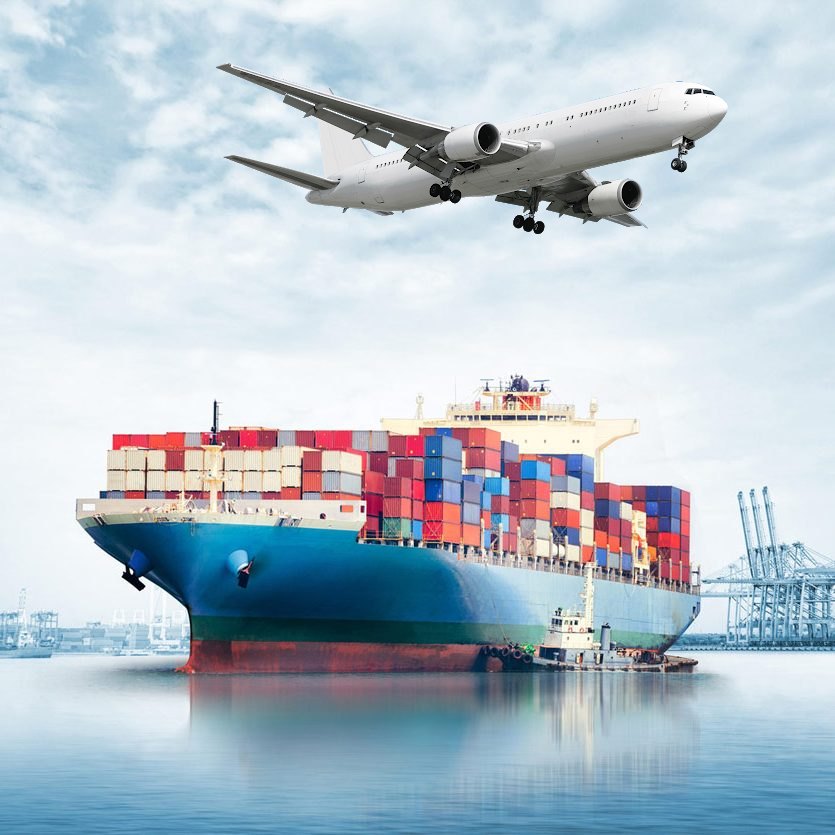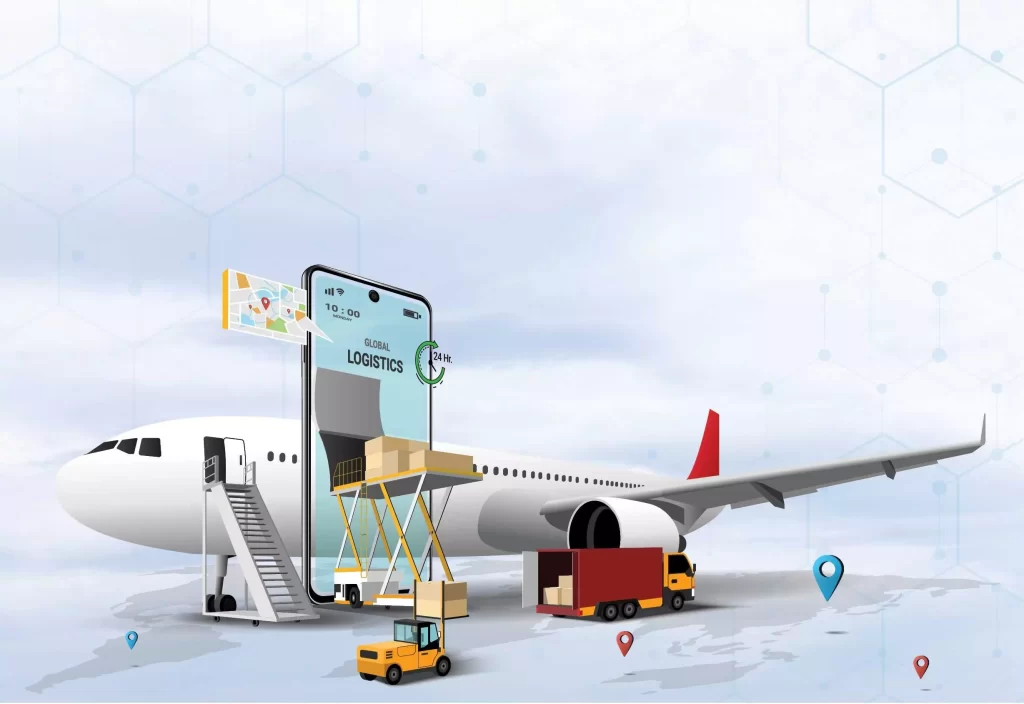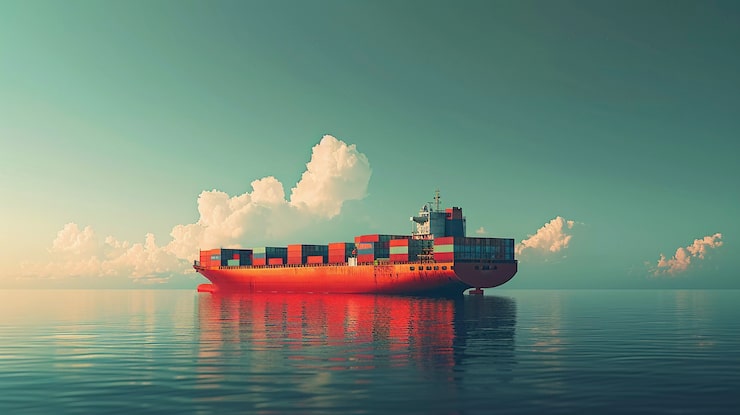- By Della tj
- September 22, 2025
- Air Freight, Shipping
Global trade between Asia and Africa continues to expand, and air freight from China to Nigeria has become one of the fastest-growing shipping solutions. Importers face challenges such as long transit times by sea and customs delays, so many businesses choose air shipping for speed and reliability. This guide explains costs, transit times, required documents, and strategies to optimize shipments.
Why Is Air Freight from China to Nigeria Important?
Air cargo plays a vital role for industries needing speed:
- Electronics: Smartphones, laptops, and accessories.
- Fashion: Seasonal clothing and fast-moving consumer goods.
- Pharmaceuticals: Medicines requiring quick and safe delivery.
Moreover, e-commerce businesses rely on air freight to replenish stock quickly and maintain customer satisfaction.
How Much Does Air Freight from China to Nigeria Cost?
Prices fluctuate based on airline, route, and cargo type.
Estimated Air Freight Charges
| Route (Airport to Airport) | Average Rate per kg | Transit Time (Days) |
|---|---|---|
| Shanghai (PVG) → Lagos (LOS) | $5.50 – $7.20 | 3–5 |
| Guangzhou (CAN) → Abuja (ABV) | $6.00 – $7.80 | 4–6 |
| Shenzhen (SZX) → Lagos (LOS) | $5.80 – $7.40 | 3–5 |
Accordingly, rates may rise during peak seasons such as Chinese New Year or holiday shopping periods.
What Factors Affect Air Freight Pricing?
Several variables determine total costs:
- Weight and volume: Airlines charge by chargeable weight (whichever is greater: actual vs volumetric).
- Type of goods: Dangerous or fragile goods incur surcharges.
- Fuel costs: Fluctuations affect freight rates significantly.
- Urgency: Express services cost more but guarantee delivery.
In addition, customs duties and VAT in Nigeria add to total landed costs.
How Long Does Air Freight from China to Nigeria Take?
Air transport is far faster than sea shipping.
Typical Transit Times
| Mode | Average Transit Time | Best Use Case |
|---|---|---|
| Air Freight | 3–7 days | Urgent shipments, electronics, apparel |
| Sea Freight | 35–50 days | Large, bulky goods at lower cost |
| Courier | 2–5 days | Small parcels, e-commerce orders |
Indeed, delays may still occur during customs clearance or due to limited cargo space.
Real-World Shipping Cases
Case 1: Electronics from Shenzhen to Lagos
- Cargo: 1,200 kg of smartphones
- Mode: Air freight
- Cost: $7,100
- Transit Time: 4 days
- Result: Retailer restocked quickly for holiday season, avoiding stockouts.
Case 2: Pharmaceuticals from Shanghai to Abuja
- Cargo: 850 kg of medical supplies
- Mode: Express air cargo
- Cost: $6,200
- Transit Time: 3 days
- Result: Importer met urgent hospital demand despite short notice.
Required Customs Documents in Nigeria
Clearance is smoother when paperwork is correct.
Customs Documents Checklist
| Document | Purpose |
|---|---|
| Air Waybill (AWB) | Proof of shipment |
| Commercial Invoice | Declares cargo value and description |
| Packing List | Lists items, weights, and volumes |
| Form M (Nigerian import form) | Authorization for import clearance |
| SONCAP Certificate | Compliance certification for regulated goods |
| HS Code Declaration | Determines applicable tariffs and duties |
Without these, goods may be delayed or fined at customs.
Air Freight vs. Sea Freight from China to Nigeria
Comparison Table
| Factor | Air Freight | Sea Freight |
|---|---|---|
| Cost | $5–$8 per kg, higher | $2,000–$5,000 per container |
| Transit Time | 3–7 days | 35–50 days |
| Cargo Size | Best for <2,000 kg | Best for large, heavy shipments |
| Reliability | Highly reliable, less congestion | Prone to delays and port backlog |
To summarize, sea freight is cheaper for bulk, but air freight is unmatched for speed.

Pros and Cons of Air Freight from China to Nigeria
Evaluation
| Pros | Cons |
|---|---|
| Fastest delivery option | Higher cost per unit |
| Reliable schedules and tracking | Limited capacity for oversized cargo |
| Reduced risk of damage | Customs delays may still occur |
| Essential for high-value or urgent cargo | Not economical for very heavy goods |
As a result, many businesses use air freight for urgent or valuable shipments while reserving sea freight for bulky cargo.
How to Save Money on Air Freight from China to Nigeria
Practical strategies include:
- Plan shipments early to avoid peak season surcharges.
- Consolidate cargo to reduce cost per kg.
- Negotiate with freight forwarders for bulk discounts.
- Choose economy service when speed is not urgent.
- Ensure accurate paperwork to avoid customs delays.
Therefore, cost management is a mix of planning and coordination.
Why Work with Freight Forwarders?
Freight forwarders simplify complex logistics:
- Secure better airline rates.
- Arrange multimodal shipping when needed.
- Handle customs paperwork and SONCAP certification.
- Offer end-to-end tracking and support.
Consequently, partnering with an experienced forwarder saves both time and money.
Conclusion
In conclusion, air freight from China to Nigeria provides speed, reliability, and security for importers handling electronics, fashion, pharmaceuticals, and e-commerce goods. Although it is more expensive than sea freight, the advantages in delivery time and reduced risk of delays make it a vital logistics option. By planning shipments strategically, preparing accurate documents, and partnering with forwarders, businesses can control costs and ensure smooth supply chains. Ultimately, leveraging air freight from China to Nigeria helps companies stay competitive in one of Africa’s fastest-growing markets.
- Consult TJ China Freight Forwarding for the lowest quote. They will provide you with reliable, cost-effective service.
FAQs
Q1.What is the average cost of air freight from China to Nigeria?
Typical rates range $5–$8 per kg, depending on airline, cargo weight, and Nigeria’s destination airport.
Q2.How long does it take to ship goods by air from China to Nigeria?
Transit usually takes 3–7 days, though customs clearance may add extra time depending on cargo type.
Q3.Can small e-commerce sellers use air freight from China to Nigeria?
Yes, air freight is ideal for e-commerce, as LCL air cargo consolidations make smaller shipments affordable.
Q4.What customs documents are needed for imports to Nigeria?
Essential documents include Air Waybill, Commercial Invoice, Packing List, Form M, HS code, and SONCAP Certificate.
Q5.Do freight forwarders reduce shipping costs for air freight from China?
Forwarders negotiate competitive rates, consolidate shipments, and ensure smoother customs clearance, lowering overall costs.



